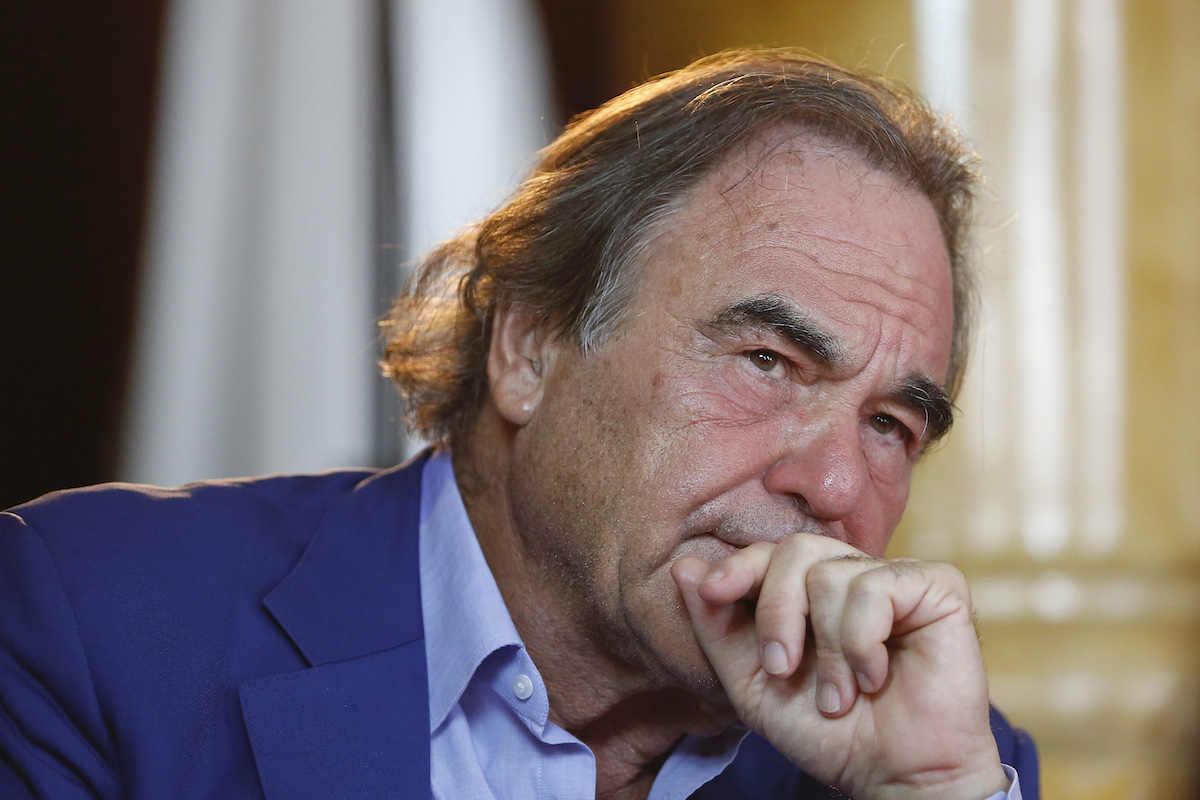Oliver Stone Reveals He Was ‘Almost Killed’ While Shooting His First Film
Hollywood wouldn’t be the same without one of its most iconic directors, Oliver Stone. He’s the man behind some of the most controversial films of all-time. But, he’s also the one who elicits Oscar-worthy performances from his long list of celebrity stars. Stone recalled one movie in which he almost lost his life in a strange turn of events.
A brief look at Oliver Stone’s career

It’s no surprise that Oliver Stone dropped out of Yale to volunteer for the Vietnam War. His time there largely inspired some of his art. One of his first credits to his name was a student film, Last Year in Viet Nam.
In the years to come, Stone wrote, produced, and directed notable projects like the political film, Salvador with James Woods, Platoon with Charlie Sheen, and Wall Street starring Michael Douglas.
However, most know Stone for the 1983 film Al Pacino-led Scarface. The director’s resume goes on with movies that have become a part of entertainment history — even if his reputation has been “difficult” at times.
Whether it’s Born on the Fourth of July, Talk Radio, or JFK, Stone’s work has been commercially-acclaimed for decades, albeit to the chagrin of critics. Even so-called “flops” like Alexander or the gory Natural Born Killers still gave Stone notoriety due to all of his years in the industry.
Much of Stone’s work touches on political commentary in one way or another, such as Nixon or Snowden.
How Stone’s time at war inspired his filmmaking
Stone, who served in two regiments in the Vietnam War, was “awarded a Bronze Star for Gallantry and a Purple Heart,” according to IMDb. His time serving is what inspired many of his movies, such as Salvador and Platoon.
The three-time Oscar winner never finished his time at Yale. He told Deadline while promoting his book, Chasing the Light, that after he returned, he “thought I needed to see what the world was really, really, really like.”
Stone explained: “I’d seen enough of it in Vietnam [while teaching] because the war was starting up then. But I didn’t see the real jungle. So I said, “I’m not going to shoot myself, I’m not going to put a bullet in my head, no.'”
He continued: “But I am going to take this risk, and I’m going to go out there and see what happens, and if it’s meant to be, it’s meant to be.” I did have that fatalism about it, you know? Also, I was a good Christian at that point, too, in the sense it was up to God. I don’t know that I could say that now, but [back then it was] roll the dice.”
That said, Stone stayed an extra three months in Vietnam for the experience.
“I put 15 months in because I wanted to be out of the Army so much. My problem with the Army, I hated the rules, the regulations. I hated the Man, the authority figure, the bullying, the constant bullying which is all over the Army, and that’s why I wanted to get out of it,” he said.
How Stone was nearly killed during a shoot
The director explains much of his life and struggles in his book but he touched on one experience he’ll never forget — because it nearly cost him his life.
“After Salvador, we were used to anything happening. Mexico is rough, too. I mean there was a lot of sh*t with Jimmy Woods…there were contracts out on Jimmy, I think. You had to take it with a grain of salt,” he said.
However, despite a possible “hit,” there’s another time Stone referred to.
“I was almost killed, actually, on Seizure, on my first film, which I didn’t much talk about. But the special effects man came after me with a machete,” he said of the low-budget horror film.
“When you’re struggling, it’s part of the deal. I was tough, at the end, I mean that we toughened up in the jungle. It was hard. Every day mattered. We couldn’t lose an hour, and every day, the fire trucks were late. He had excuses and blah, blah, blah, and I’m the only guy who pays when we’re late,” he said.
He continued: “In other words, if we don’t get the day in on a low-budget film, you got to cut from the script. And the script was sacred to me. I was fighting for my script, so any attack on the time on the film was an attack on the script, and that was the most important thing. You can see that I would go crazy.”
As for what happened to that man, Stone said he never found him.
“I knew he was looking for me. He was drunk, and they got me out of the house because they didn’t want to have a confrontation and he was insane. But he was fired.”


